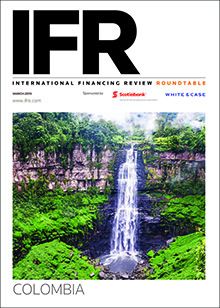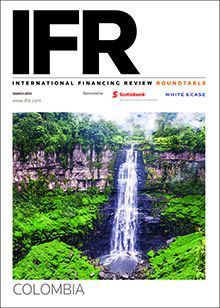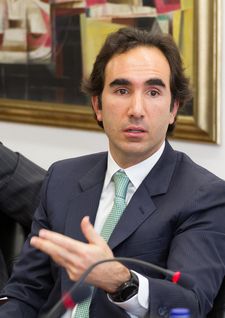IFR held its first Colombia Capital Markets Roundtable on February 8 in Bogotá, bringing together high-profile issuers, borrowers and bankers to discuss the prospects for a country that looks set for renewed growth this year.
Topics ranged from the difficulties of deepening the country’s local debt markets to infrastructure financing to whether the new government can successfully attend to fiscal imbalances.
Investments had largely been on hold last year ahead of an uncertain election and amid concerns that Colombia, rated Baa2/BBB-/BBB, could eventually lose its coveted investment-grade rating as the government’s finances deteriorated.
But with the 42-year-old market favourite Iván Duque now president, companies are expected to feel more comfortable about moving forward with investment plans, prompting policymakers to predict a healthy growth rate of 3.5% in 2019.
Even so, challenges remain. Duque’s efforts at tax reform fell short last year. And while the watered-down version approved by Congress is seen helping the government meet its fiscal targets this year, more needs to be done to satisfy the ratings agencies.
The current account deficit is starting to grow again and the country’s fiscal hole is expected to expand failing further reforms. Plans to sell assets to fill the gap could do the trick, though ratings agencies say that is unsustainable.
New finance minister Alberto Carrasquilla is an old hand at dealing with government finances, having worked in the same role between 2003 and 2007. He was quick to announce a spending freeze following the disappointing tax bill, reaffirming the market’s faith in the country’s commitment to fiscal discipline.
The government has said that tax reform is a multi-stage process, as it is in most countries, and will eventually yield more revenues, and that Colombia is moving to a world of fiscal surpluses, not deficits. Oil prices also remain relatively buoyant, further bolstering revenues.
And while the crisis in Venezuela has had a negative impact as the Colombian government absorbs the cost of millions of migrants crossing its borders in search of a better life, that could change.
A change of regime across the border could benefit the Colombian economy as aid relief and investments pour into the neighbouring country.
Meanwhile, the country still suffers from a large infrastructure deficit, and the much-vaunted 4G infrastructure programme has hit road blocks after the bribery scandal centered around Brazilian construction firm Odebrecht reached Colombian shores.
The Ruta del Sol 2 toll road project – which was won by a consortium led by Odebrecht – burned several borrowers and has created a risk-averse attitude among local banks that had previously been open to financing such schemes.
The country’s infrastructure bank, FDN, has sensibly sought to diversify the funding base for 4G, while also keeping local banks on board. Mini-perm structures that appeal to international lenders, local bonds and more capital markets financing are likely.
Even so, regulators have much to do to deepen the country’s domestic bond markets. This government and the previous administration have made great strides in opening up the local Treasury or TES market to foreigners, who now make up about 26% of holders.
But equity and bond issues for corporates are still in their infancy with some laws arguably stifling growth. Still, efforts to deepen such markets are underway that could yield results.
All these factors and more were on the minds of some of the leading figures in Colombia’s capital markets, who sat down in the roundtable to discuss the future of financing in the country.
To see the digital version of this roundtable, please click here
To purchase printed copies or a PDF of this report, please email gloria.balbastro@refinitiv.com



